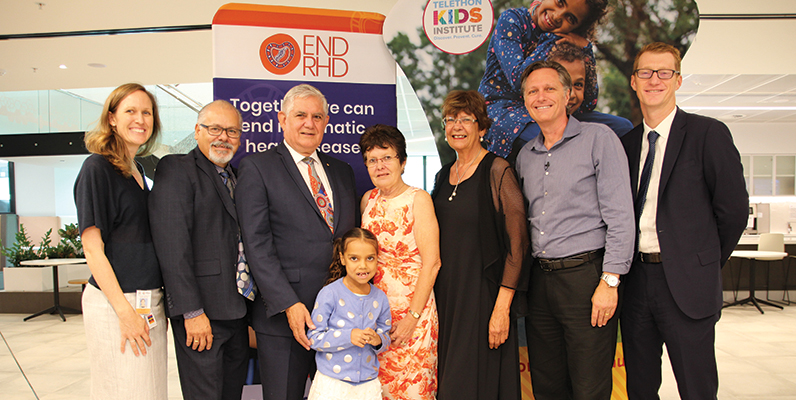Search
Rheumatic heart disease is the largest contributor to cardiac-related mortality in children worldwide. Outcomes in endemic settings after its antecedent illness, acute rheumatic fever, are not well understood. We aimed to describe 3-5 year mortality, acute rheumatic fever recurrence, changes in carditis, and correlates of mortality after acute rheumatic fever.
Streptococcus pyogenes, also known as group A streptococcus (StrepA), is a bacterium that causes a range of human diseases, including pharyngitis, impetigo, invasive infections, and post-infection immune sequelae such as rheumatic fever and rheumatic heart disease. StrepA infections cause some of the highest burden of disease and death in mostly young populations in low-resource settings. Despite decades of effort, there is still no licensed StrepA vaccine, which if developed, could be a cost-effective way to reduce the incidence of disease.
Rheumatic heart disease (RHD) poses significant perinatal risks. We aimed to describe the spectrum, severity and outcomes of rheumatic mitral valve disease in pregnancy in Australia and New Zealand.
In Australia’s north, Aboriginal peoples live with world-high rates of rheumatic heart disease (RHD) and its precursor, acute rheumatic fever (ARF); driven by social and environmental determinants of health. We undertook a program of work to strengthen RHD primordial and primary prevention using a model addressing six domains: housing and environmental support, community awareness and empowerment, health literacy, health and education service integration, health navigation and health provider education.
Group A Streptococcus (GAS) causes pharyngitis (sore throat) and impetigo (skin sores) GAS pharyngitis triggers rheumatic fever (RF) with epidemiological evidence supporting that GAS impetigo may also trigger RF in Australian Aboriginal children. Understanding the concurrent burden of these superficial GAS infections is critical to RF prevention. This pilot study aimed to trial tools for concurrent surveillance of sore throats and skins sore for contemporary studies of RF pathogenesis including development of a sore throat checklist for Aboriginal families and pharynx photography.
Urinary tract infections (UTIs) due to MDR organisms are increasingly common. The lack of paediatric data on efficacious antibiotics makes UTI treatment particularly challenging. Data on the efficacy of fosfomycin use for UTI in children are variable.
Regular intramuscular (i.m.) benzathine penicillin G (BPG) injections have been the cornerstone of rheumatic heart disease (RHD) secondary prophylaxis since the 1950s. Patient adherence to IM BPG is poor, largely due to pain, the need for regular injections every 3-4 weeks and health sector delivery challenges in resource-limited settings. There is an urgent need for new approaches for secondary prophylaxis, such as an implant which could provide sustained penicillin concentrations for more than 6 months.

The Kimberley has the highest rates of rheumatic heart disease (RHD) in Western Australia – but through the establishment of a new community-led, research-backed project known as END RHD Communities, there’s hope this will change.

It's been a huge year for those working to eliminate rheumatic heart disease (RHD), with breakthroughs including $35M in funding to develop a Strep A vaccine.

When Katrina took her daughter Tenaya to the local emergency department for the fourth time, she was determined she wouldn’t be leaving without answers.
